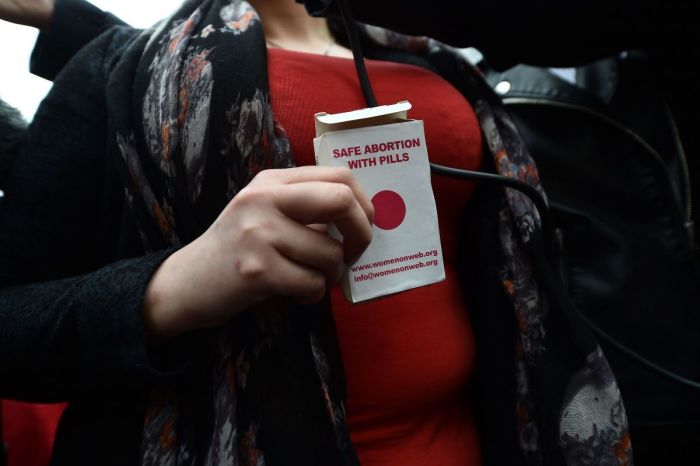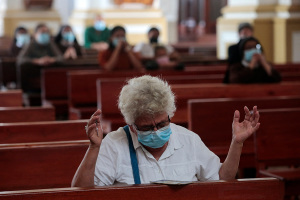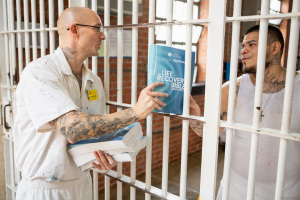Pro-life doctor warns of dangers as European org. ships abortion pills to Americans

As doctors in Europe continue to ship abortion pills to Americans as some states ban the drug after the U.S. Supreme court overturned Roe v. Wade last month, a pro-life doctor is warning that mailing from overseas is a "dangerous" way to distribute the drug.
Dr. Donna Harrison, CEO of the 6,000-member American Association of Pro-Life Obstetricians and Gynecologists, has offered her concerns as a group called Aid Access has worked to provide chemical abortion pills to the U.S. for four years and vows to continue doing so.
Since the Supreme Court overturnedRoe last month, concluding that there is no constitutional right to abortion and returning the issue to the states, Aid Access has reported that it receives 4,000 requests a day for abortion pills, up from 600 to 700 a day.
In an interview with The Christian Post, Harrison said that in ordering the pills online, women may not know exactly how far along their pregnancy is, which means there is a lack of informed consent.
The doctor also noted that about one in 50 pregnancies in the United States end in an ectopic pregnancy, a life-threatening condition where the embryo implants outside the uterus. According to the Cleveland Clinic, the side effects of taking the abortion pill can include heavy and painful bleeding.
Chemical abortions require patients to take two drugs — mifepristone and misoprostol. The drugs are approved by the FDA to terminate pregnancy up to 10 weeks gestation.
"The symptoms of a Mifeprex abortion are exactly the same as a rupturing ectopic pregnancy," Harrison said.
"So a woman who is having pain and bleeding will go on the internet, say, 'Oh, yes, I should expect pain and bleeding from this operation,' not knowing she's got a rupturing ectopic pregnancy, and then she dies from an internal hemorrhage."
Aid Access is led by Dutch physician Dr. Rebecca Gompers, who founded the organization in 2018. The organization consists of four doctors supervising a team of about 10 medical staff members.
Potential patients visit Aid Access's website and answer a series of questions, such as how far along they are in pregnancy and whether anyone is forcing them into the abortion. The medical team then sends a prescription for the abortion pill to the pharmacy.
As NBC reported, it's been difficult for U.S. authorities to stop Aid Access from mailing abortion pills, even to states with strict abortion laws, because the organization operates outside the country and ships pills from India.
"We will continue to serve women who need it. We're not going to stop," Gompers said in a statement. "We are expanding again our capacity, so we can help with all the requests that we get."
In 2019, the U.S. Food and Drug Administration sent a warning letter to Aid Access calling on it to "immediately cease causing the introduction of these violative drugs into U.S. commerce."
"By facilitating the sale of unapproved mifepristone and misoprostol to consumers in the U.S., Aidaccess.org causes the introduction of unapproved new drugs into U.S. commerce in violation of the FD&C Act," the letter stated.
"These drugs are also new drugs ... because they are not generally recognized as safe and effective for their labeled use. New drugs may not be legally introduced or delivered for introduction into interstate commerce without prior approval from FDA."
Harrison, an adjunct professor at Trinity International University in Deerfield, Illinois, believes that distributing abortion pills online is a "dangerous" way to administer such a drug.
With chemical abortion pills being available online, Harrison also stated that it could be easy for a boyfriend or even a sex trafficker to order them and force women to undergo a chemical abortion without her consent.
Planned Parenthood, the nation's largest abortion provider, promotes chemical abortion as "really safe and effective" on its website, stating that millions have used it safely. The organization contends that complications after an abortion are rare and typically happen in special circumstances, such as a woman ending a pregnancy for health reasons or if she has a history of mental health problems.
Other sources, however, have questioned the validity of data available on the complications from abortion pills.
A peer-reviewed study published in May by the pro-life research organization Charlotte Lozier Institute, which Harrison co-authored, suggests that multiple cases of complications from the abortion pill were mischaracterized as miscarriages.
The study consisted of a 17-year longitudinal analysis of 423,000 confirmed abortions and 121,283 confirmed subsequent visits to an emergency room within 30 days of the abortion. Researchers assessed women over 13 years of age with at least one identifiable pregnancy between 1999 and 2015.
According to the study, "of the women with miscoded abortion pill complications who were admitted to the hospital, 86% needed surgery for [retained products of conception]." The rate was 2.5 times higher than women who underwent surgical abortions and were miscoded as miscarriage patients.
A 2009 study titled "Immediate complications of medical compared with surgical termination of pregnancy" purports that the need for emergency surgery to complete abortion for women who take Mifeprex before nine weeks of pregnancy is four times greater than the risk of surgical abortion.




























